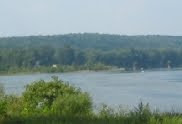Whistleblower issue complicated
I am writing in response to the Sept. 3 article about whistle-blower protection in Pennsylvania. The scope of Pennsylvania's Whistleblower Law is not as broad as the article suggests.
Your article stated: "While most of these states extend protection to governmental employees, Pennsylvania is among the few that also protect private-sector workers." Pennsylvania's Whistleblower Law does not extend to most private-sector workers. It would be equally inappropriate, however, to err in the other extreme, and assume that no private entity could ever be covered by Pennsylvania's Whistleblower Law. The reality is much more complicated.
The Pennsylvania Whistleblower Law does not differentiate explicitly between public and private employers. Rather, the law covers employees who are terminated or otherwise retaliated against by "a public body." For whistle-blower purposes, a "public body" can be the government, but it can also be an entity that receives funding from the government. So, for example, the Medical College of Pennsylvania has been found to be a "public body" because it receives annual appropriations from the state.
Similarly, a nursing home that received significant funding via Medicaid was found to be a "public body" for purposes of Pennsylvania's Whistleblower Law. Private employers who do not receive public money are not covered by Pennsylvania's Whistleblower Law.
While a number of federal laws, including the Sarbanes-Oxley Act and certain environmental statutes, also provide whistle-blower protection, there is no general, all-encompassing protection for workplace whistle-blowers. As always, people should seek the advice of competent legal counsel when considering any issue involving whistle-blower rights.
Jordan Yeager
Doylestown Township
September 12, 2010
More on the whistleblower issue
Letter to the Editor of the Intelligencer, September 12, 2010:
